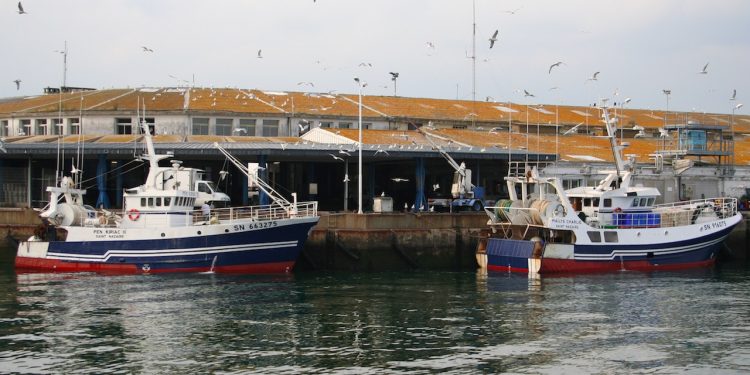Representing the interests of more than 22,000 fishermen and 8000 vessels, an alliance of fishing organisations from across the European Union has headed to Brussels to make clear the importance and realities of demersal trawling to Fisheries Commissioner Virginijus Sinkevičius.
The industry had requested this meeting with the Commissioner, following the negative perception of certain demersal gears expressed by the Commission, and against the backdrop of the Action Plan that the Commission is developing to further protect fisheries resources and marine ecosystems in the context of EU’s 2030 Biodiversity Strategy, which seeks to further limit and restrict bottom contact fishing gears.

‘Our vessels bring ashore more than one million tonnes of healthy and sustainable seafood annually, which represents around 25% of the total EU landings. The value of the landings generates almost 40% of the total revenue of the sector, contributing to the wealth, employment and industrial fabric of many coastal and peripheral communities,’ said meeting convenor Javier Garat.
At the meeting with Commissioner Sinkevičius, the industry’s representatives showcased the sustainability and overall importance of these widespread fishing methods across all EU member states and demonstrated that these fisheries are well regulated, controlled, researched and widely certified.
Fishing industry representatives from all parts of Europe spoke with a united voice in the meeting highlighting the fundamental role played by bottom fisheries, both small and large scale, in guaranteeing food security.
Industry alliance
The industry’s representatives used the meeting to announce the establishment of the European Bottom Fishing Alliance (EBFA), representing EU-based demersal fishing fleets.
The alliance will be launched next month with the goal to defend, support and showcase the environmental, economic, social and cultural realities of bottom fishing activities across the European Union fishing nations.
‘Thanks to effective, science- based management bottom fishing activities only take place in limited and high-resilient marine grounds, minimising impact on the marine ecosystems and resources. Recent scientific research demonstrates this,’ stated co-convenor Gerard van Balsfoort.
‘The Commission’s policy direction on bottom fishing should be based on factual, scientific and peer-reviewed evidence and comprehensive impact assessments. Using pseudoscience or unsubstantiated claims, such as those relating to the fisheries footprint or carbon emissions of the sector, to build EU policies will not help oceans’ health nor fishers’.’









